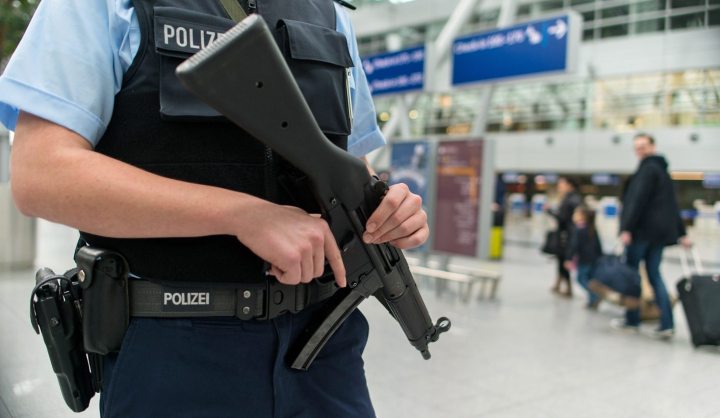World
Analysis: Brussels attacks are a warning to plan for the worst

The Belgian attacks show that Islamic State is under pressure but extremely flexible. The effectiveness of their sleeper cell model, combined with excellent propaganda, means that all countries need to be on high alert. And yes, that includes South Africa. By JASMINE OPPERMAN.
Early on 22 March 2016, co-ordinated explosions rocked the Belgian capital of Brussels: two at Zaventem Airport and another at a metro station in the centre of the city, near European Union buildings. So far, about 34 people have died, and more than 100 have been reported injured. Islamic State (IS) has claimed responsibility for the attacks.
It’s tempting to see these attacks as merely a knee-jerk response from the Islamist group to the arrest last week of Salah Abdelslam, one of the November 2015 Paris attackers who had been on the run since then. There’s a lot more going on than that, however.
Under interrogation, Abdeslam admitted to Belgian police that he was “ready to do something in Brussels”. After finding many weapons, including heavy weapons, investigators believed that Abdeslam’s confession was true and that the Paris attacker was indeed on the verge of undertaking a terrorist operation in Brussels. Furthermore, they found a new network around Abdeslam in Brussels.
This information, revealed a few days prior to the Brussels attacks, evolved from theory to reality as three explosions rocked the Belgian capital. Given Abdeslam’s revelations and police reports of a new jihadist cell around him, it is more than likely that the Brussels explosions were undertaken by this new cell centred on Abdeslam. During the week preceding the attacks, the Belgian police managed to arrest and kill some of those jihadists (in operations in Molenbeek and Forest). Tragically, it wasn’t enough.
This ability to react with flexibility and ferocity in equal measure is a signature of IS as a terrorist organisation. It has established sleeper cells in foreign cities, which allows the group to activate and execute attacks as deemed necessary by the central leadership. The sophistication and training of these sleeper cells often surpasses the ability of western intelligence to find them or prevent attacks, as evidenced by the twin Brussels blasts.
In the wider picture, the Brussels attacks are not just about Abdelslam’s arrest, but also in response to the increased pressure on IS in its strongholds in Syria and Iraq (where it governs significant amounts of territory). The pressure comes primarily from aerial bombing raids, led by Gulf and Western nations, and any nation involved – even tangentially – is an obvious target. Belgium, as a member of the US-led bombing coalition and origin of a high number of foreign fighters that have joined IS in Syria, was always at an even higher risk.
At the same time, IS hopes to divert attention away from from its struggles on the home front.
But attacks on western cities are not just about retribution or distraction. They are also designed to send a message that IS is present and active in these countries, and maintains the ability to perpetrate violent acts at will – regardless of increased security measures.
More important, they are hoping to divide western communities by inciting a harsh security-led response from governments, and an anti-Muslim backlash. IS can exploit these tensions, both in its highly-developed propaganda material and in its person-to-person recruitment operation. The principle is that in the near to medium-term future, IS will continue with similar attacks: not only in Europe but in Africa too.
There is little to suggest that the various government intelligence agencies trying to prevent more attacks have the penetration necessary to prevent such attacks. This is likely to be coupled with a propaganda campaign depicting a Europe in crisis and Muslims under threat, with the Islamic State’s self-declared Caliphate as the only saviour. This may in turn inspire “lone wolf” attacks not directly managed or ordered by IS.
This new reality raises disturbing questions even as far south as South Africa. The message from the attacks is clear – where IS has an audience willing to respond, it will use any available avenue to gain and claim successes. South Africa has that audience, even if it is a minuscule minority of the Muslim community here.
There have been documented cases of dozens of South Africans moving to the Caliphate, which means it is impossible to rule out the possibility of sleeper cells existing in the country. It only takes a handful of individuals to execute attacks, and potential targets such as airports and hotels are not subject to stringent security measures.
So is IS likely to target South Africa? That question misses the point. An IS attack is the worst-case scenario, but the best counterterrorism strategy is always to plan for the worst. Likely or not – and like it or not – South Africa had better get planning. DM
Jasmine Opperman is the Africa Director for the Terrorism Research and Analysis Consortium.
Photo: Armed members of the German police patrol an area at the airport in Duesseldorf, Germany, 22 March 2016. German federal police have stepped up their security measures following the terror attacks in Brussels, Belgium, that left many people dead and injured. EPA/MONIKA SKOLIMOWSKA.


















 Become an Insider
Become an Insider